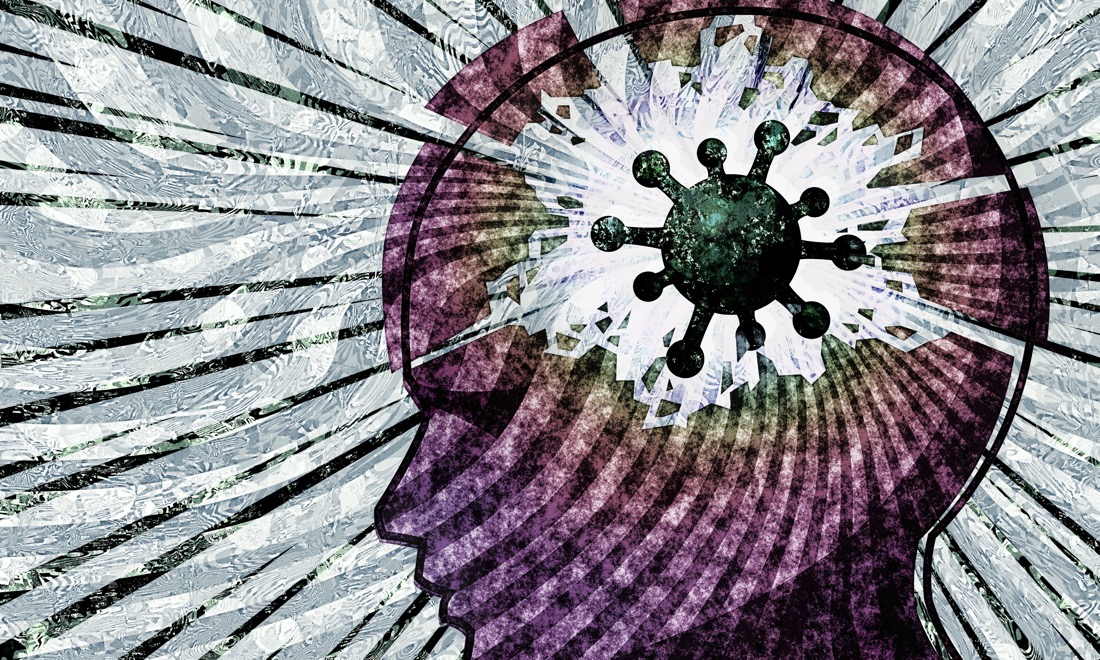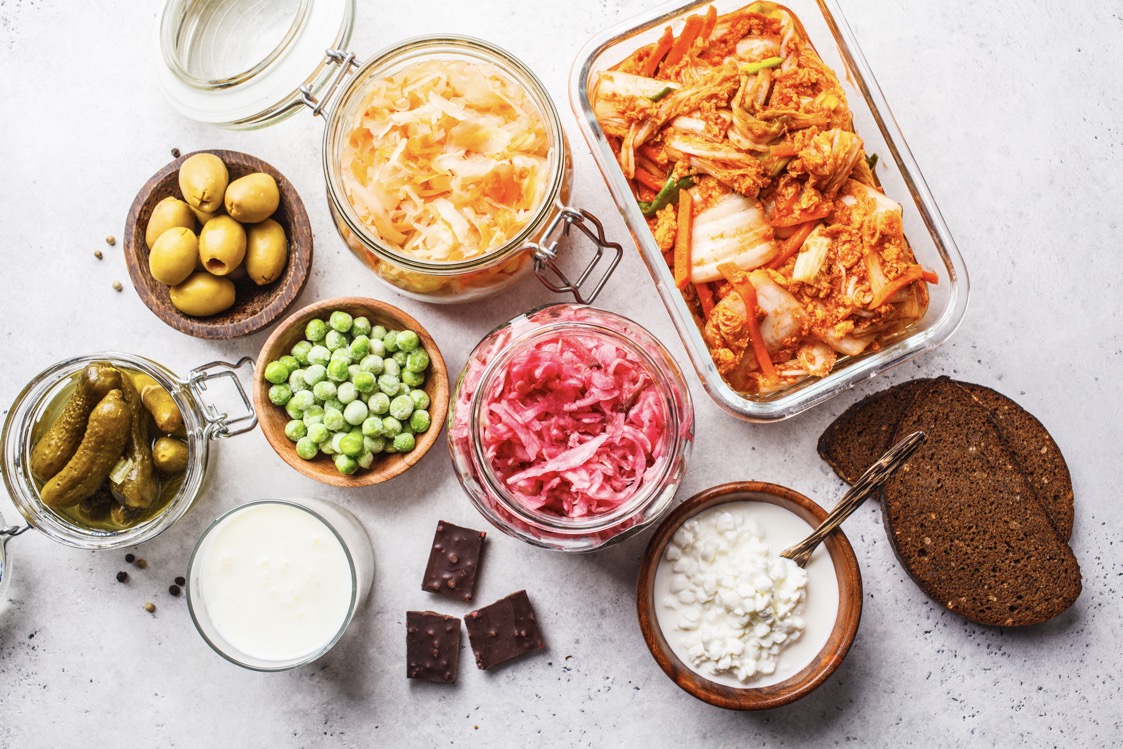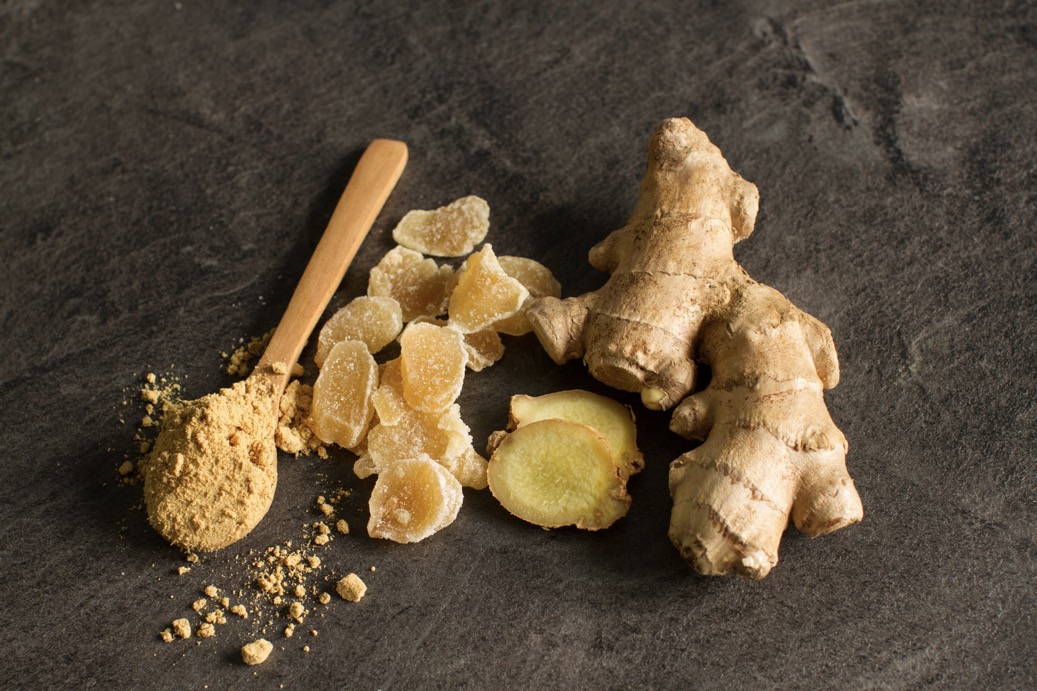Off the back of the Covid-19 pandemic, a new chronic illness is emerging – long covid or long-haul covid. Up to 30% of people who’ve had an acute infection experience ongoing symptoms. For some, Covid-19 is the unwanted gift that keeps on giving.
Long Covid Case Study – Part 1
James* a 29-year-old teacher, celebrated Christmas 2021 by getting Covid-19. The acute infection was considered mild. He had a few days of fever, muscle aches and general malaise. Heading back into the classroom, James found it difficult to get through the teaching day. After lunch, his energy tanked, and he felt like curling up under the desk for a nap. His thinking felt muddled. Despite teaching the same subject many times, he struggled to recall basic information and focus. Previously he rarely got headaches, but since having Covid, he would frequently get them accompanied by nausea and dizziness. Once home, he barely had energy for dinner and would be in bed by 7:30 pm, but no matter how much he slept, he still didn’t feel refreshed.
After a battery of tests and seeing several medical specialists – there were no answers and no improvements in his symptoms. He was worried that he wouldn’t be able to continue in his job and just wanted to feel like himself again.
Long covid in Australia
Overseas Naturopath colleagues tell me their clinics are full of people like James who seem to be suffering from aftereffects of Covid infection. Australia relaxed travel restrictions and public health measures in late 2021, so 2022 has seen a surge in Covid-19 infections and Covid “long haulers” are starting to present to our clinics.
Thankfully most people are being taken seriously by the medical profession, but sadly some are being told their symptoms aren’t “real” and it’s all in their heads.
It’s real, and it exists. You’re not malingering or being lazy.
The medical profession, at this point, doesn’t seem to have much to offer people with long covid. This is where I feel natural medicine can provide support to help people regain their health and quality of life.
What is long Covid?
Long covid is a cluster of symptoms which persist longer than 12 weeks after an initial covid-19 infection. There is no strong correlation between long covid and the severity of the initial infection. Long covid affects both hospitalised and non-hospitalised patients.
Covid-19 is the new kid on the viral infection block, so research into the condition is limited, but more is emerging. There are many hypotheses about the causes of long covid but no clear-cut pathophysiology. What we do know is it is wide-ranging and complex and affects multiple body systems.
Why it is an issue
At the personal level, Long covid can significantly decrease the individual quality of life. Depression and anxiety are both symptoms of long covid arising from the condition. At a societal level, it has implications for workforce participation. Large swathes of the population will be impacted by long covid.
A study of 195 people who had a prior covid-19 infection found that 40% were unable to return to work within eight weeks, and of the 60% who did return to work, 25% were on reduced hours or light duties. It’s easy to see how the scale could impact many industries and professions.
What’s happening with long covid?
Acute CV-19 is a multisystem disease. This is because the ACE-2 receptors targeted by the virus are present in many organs and tissues.
Pathophysiology of long covid
- Organ damage from micro clots
- Imbalance in microbiome
- Mitochondrial dysfunction
- Immune dysregulation may trigger other autoimmune conditions, particularly myalgias.
- Oxidative stress and unresolved inflammation
- Post viral fatigue like myalgic encephalomyelitis /chronic fatigue syndrome (ME/CFS)
Possible causes of long Covid
Rather than detail these, I’ve included relevant links to the research papers to whet your appetite.
- Reactivation of Epstein Barr Virus
- MAST cell activation
- Altered tryptophan metabolism
- Pathological inflammation
- Persistent Endotheliopathy
- Dysautonomia
- Gut-brain axis and microbiome dysregulation
Symptoms of long-covid
People often experience a cluster of symptoms. They include physical, mental and psychological symptoms. Because covid-19 can affect many body systems, the list of long covid symptoms is extensive.
The most-reported are
- Fatigue
- Insomnia and sleep difficulties
- Brain fog/cognitive dysfunction
- Shortness of breath
- Persistent cough
- Muscle aches
- Post-exertional malaise
Other symptoms include
- Altered bowel motions
- Loss of appetite
- Nausea/vomiting
- Reflux
- Absence of taste/smell
- Headaches
- Heart palpitations
- Dizzy spells
- Body tingles
- Loss of hair
- Anxiety/depression
- Hearing loss / tinnitus
- Skin rashes and lesions
Symptoms may not be present all the time but may come in waves.
Who is most at risk for Long Covid?
- Presence of five or more of the long covid symptoms. Higher symptom load in the acute stage is significantly associated with developing long covid.
- Prior history of Epstein Barr virus or cytomegalovirus infection
- Low Vitamin D
- Existing inflammation
- Female
- Older age
- Chronic disease co-morbidities, especially hypertension
- Asthma
- Gut dysbiosis
Is there a test for long covid?
There is currently no single test for long covid. Diagnosis is based on having had a Covid-19 infection and the cluster of symptoms. It is a diagnosis of exclusion.
The natural treatment approach to long covid
Long covid shares many similarities to post-viral fatigue syndromes. This seems a logical place to launch a treatment plan with three vital clinical aims.
- Reduce systemic inflammatory responses
- Support immune system regulation
- Rebalance the autonomic nervous system
Diet
A nutritious diet is the foundation of health. It also is affordable and accessible for most people. Although no specific research has been done on diets for long covid, there are a wealth of studies for diets supporting the three treatment aims mentioned above.
While some specific foods will be mentioned, don’t get too bogged down in the individual foods. Understand the overall dietary pattern, and you can seasonally and regionally adapt to what’s available to you.
Read more about gut health and long covid recovery.
Diet principles
In short, you want a plant-based diet. This doesn’t mean you have to go exclusively plant-based (vegan). If you enjoy meat, this can be included, but it shouldn’t be the hero ingredient on your plate.
Choose a variety of foods. Mix your fruit and vegetables up weekly and choose what’s in season. It will not only be cheaper but also have more nutrients.
Make your diet high in
- Fibre (fruits, vegetables, legumes) supports a healthy gut microbiome which in turn helps mood and immunity.
- Plant antioxidants and polyphenols (fruit, vegetables – eat the rainbow), fresh and dried herbs and spices
- Help reduce inflammation
- Improve cerebral blood flow and reduce brain fog
- Supporting cellular energy metabolism improves energy.
The diet should be low in
- Saturated fats
- Industrial seed oils like sunflower, canola and grapeseed
- Processed foods
- Refined sugars
- Alcohol
- Caffeine (up to 100mg caffeine is ok ~ 1 espresso-style coffee. Have it in the morning, so it doesn’t impact your sleep.
Specific dietary nutrients for long Covid
Quercetin
Apples, plums, cherries, broccoli, buckwheat, onions, and tea contain quercetin. Quercetin is a dietary monoamine oxidase (MAO) inhibitor, which slows the breakdown of neurotransmitters like serotonin, noradrenaline and dopamine and may help with depression, anxiety and focus.
Quercetin also possesses anti-viral properties. It’s anti-inflammatory and inhibits clotting. These would make it useful in acute viral infections. It also helps suppress MAST cell activation /allergy type symptoms which may be one of the drivers of long covid.
Omega 3 fatty acids
The balance between omega-3 fatty acids and omega-6 fatty acids controls inflammatory molecules. Both omega 3 and omega 6 fats are essential for health. However, the modern diet is awash in Omega 6 thanks mainly to the overuse of industrialised seed oils like canola and sunflower oil.
There are two parts to getting the omegas back in balance. Firstly, decrease the amount of omega-6 oils. You’ll immediately do this if you ditch processed foods as they are packed with them. Secondly, increase omega 3 foods. These include oily fish such as wild-caught salmon, mackerel, herrings and sardines. Plant-based omega 3 include chia, hemp and flax seeds, edamame, purslane, seaweeds, fresh basil, walnuts, Brussel sprouts and purslane. If you eat animal products, choose grass-fed meat and eggs where the hens are pasture-fed, not grain.
Tryptophan-rich foods
Tryptophan is an amino acid required as a building block for the neurotransmitters serotonin and melatonin. It’s essential for mood, sleep quality and energy production.
High tryptophan foods
- Turkey
- Tinned tuna
- Chicken
- Cottage cheese,
- pumpkin and sesame seeds,
- bananas
- lentils,
- cashews, pistachios, almonds
Have tryptophan-rich foods with complex carbohydrates to improve absorption.
Gut health and Long Covid
Increasingly we are learning about the impact of Covid on gut health. People who have had mild covid report bloating, nausea and reflux and ongoing changes in bowel habits. The gut contains many ACE-2 receptors, so it would make sense for digestive symptoms to be part of the long covid picture. The digestive system regulates immune function and mood through the makeup of the gut microbiome. Covid seems to upset the balance of good versus not-so-good gut bugs. This can be a factor in persistent respiratory symptoms.
What happens in the gut does not stay in the gut.
Probiotics and Prebiotics
How can you restore your gut health? Well, following the diet recommendations above will give you a good start. Also, short-term supplementation with a combination of prebiotics and probiotics could be helpful. One study found that a Lactobacillus probiotic with inulin used for 30 days was helpful.
Another prebiotic I have found clinically helpful is partially hydrolysed guar gum (PHGG).
Nausea
Ginger, fresh, juiced or in a tablet, can be helpful for nausea. Can’t tolerate ginger? Try peppermint instead.
Lifestyle
Sleep
Lingering inflammatory response triggers sleep disruptions.
This neuroinflammation appears to alter sleep architecture resulting in reduced slow-wave (restorative sleep).
If you’ve had Covid and are experiencing long covid, you probably need more sleep than you think. Allow yourself plenty of shut-eye. Slow-wave sleep early in the night helps the immune system rebalance and reduces inflammation.
Support sleep quality by
- Ensuring you get at least 30 minutes of exposure to daylight per day (without sunglasses). During the day, your body produces melatonin, which will be released when it gets dark.
- Stay off screens at least an hour before your bedtime.
- Dim the lights in your house or switch to low-light lamps one hour before bed. This will support melatonin production.
Herbal medicines for long covid
Although covid 19 and long covid symptoms are new to us, they share many similarities with other post-viral syndromes like ME/CFS.
I will mention specific herbal medicines, but I encourage you to seek advice from a qualified herbalist or Naturopath. I’ve been applying my clinical knowledge from conditions these to long Covid with promising results. Each herb has a particular “picture” of symptoms it helps best with. Not all herbs will suit everyone, plus there are so many more herbs with potential benefits that I can cover in the scope of this article.
Seeking professional advice is particularly important if you take medications or are pregnant or breastfeeding, as some herbal medicines are contraindicated.
Like all things to do with long covid, patience is essential. Herbal medicine is slow(ish) medicine. You’ll notice some benefits within four weeks but usually get maximum benefits in around 12 weeks.
There are three categories of herbal medicines with potential benefits for long covid immune tonics, adaptogens and anti-inflammatories. There are many more in each category, and most herbs will overlap categories too. I’ll discuss those I frequently use in clinical practice.
Immune tonics
These are a category of herbal medicines which helps modulate and regulate the immune system enabling it to function optimally.
Astragalus
(Astragalus membranaceous)
This root from the Traditional Chinese Medicine (TCM) pharmacopoeia has FATIGUE as its keynote. It improves vitality and helps the body regain balance after an acute infection. (It is traditionally avoided during the acute stages of illness.)
Astragalus acts broadly on the immune system keeping it from hyperactivity. It also helps reduce allergy symptoms and can act as a cardiovascular tonic.
Astragalus may be able to compensate for some of the loss of ACE2 functions caused by Covid -19.
Although I mainly prescribe it as a concentrated liquid extract, Astragalus can also be used to flavour broths, soups and stocks as a gentle, tonifying “food as medicine”.
Eleuthero
(Eleutherococcus senticosus)
Another herb from the TCM apothecary Eleuthero used to be known as Siberian ginseng, but it’s not ginseng, so a name change was in order.
Eleuthero is a gentle immune tonic, adaptogen and anti-inflammatory. If I could only use one herb for post-viral fatigue syndromes, this would be it.
By enhancing mitochondrial (our cellular batteries) activity, Eleuthero increases energy, stamina and endurance in a non-stimulating way. This means your energy won’t spike up and then crash and burn.
Other actions which make it useful in long covid is its ability to improve focus and enhance deep, refreshing sleep.
Reishi
(Ganoderma lucidum)
Reishi is a medicinal mushroom with immune, anti-inflammatory and apoptogenic properties.
On the immune front, it stimulates innate immunity and inhibits histamine making it useful for allergies and MAST cell activation.
Reishi helps improve energy by improving oxygen utilisation.
It has further potential in managing long covid symptoms of sleep disruption, nausea, depression, and anxiety caused by neuroinflammation.
Adaptogens
Adaptogen herbs support the body in coping and recovering from stress. Adaptogens are a unique class of herbal medicines, and there’s no equivalent in pharmaceuticals. They support and regulate of HPA (Hypothalamic-pituitary-adrenal) axis and can support the healthy functioning of the autonomic nervous system, which is often an issue in post-viral fatigue.
Rhodiola
(Rhodiola rosacea)
Rhodiola is my go-to herb for brain fog and focus issues, especially where depression is in the picture. Like many other adaptogens, Rhodiola supports the mitochondria to improve energy balance. It is effective at helping extended periods of concentration.
Rhodiola is a moderately stimulating adaptogen so take this one in the morning. I’ve also found that Rhodiola might not be the right herb for you if you have a poor tolerance to caffeine.
Cordyceps
(Cordyceps militaris)
This medicinal mushroom is the herb for the mitochondria. It improves oxygen uptake into the tissues. I find it has a particular affinity for lung function. It’s also beneficial for tinnitus (not caused by prolonged exposure to loud noise).
Stick within the recommended dosage range for Cordyceps as too much can be immunosuppressive and cause headaches.
Anti-inflammatory
These are a class of herbs which, as the name suggested, help resolve inflammation. Most plants have anti-inflammatory properties, which is one of the reasons the plant-based diet principles discussed above have broad health benefits.
Baical Scullcap
(Scutellaria baicalensis)
Like Astragalus, Baical scullcap may also be able to compensate for ACE function damaged by Covid-19 infection. It’s an excellent herb for allergies and stabilising MAST cells. Its anti-inflammatory actions may lower the risk of clots.
If autoimmunity is an issue, Baical scullcap is a valuable addition to the mix.
Ginkgo
(Ginkgo biloba)
Ginkgo is one of my top anti-inflammatory herbs and brain tonics. It reduces the inflammatory cytokine interleukin 6 (IL-6). IL-6 may play a key role in developing long covid.
Ginkgo improves microvascular circulation and endothelial health. It has a particular affinity for the lungs, where shortness of breath is an issue.
** Ginkgo should not replace any prescribed medications for asthma management.
Hawthorn
(Crataegus monogyna)
Often pigeon-holed as “the heart” herb, Hawthorn’s abundant anthocyanidins make it helpful to counteract the endothelial damage caused by the Covid-19.
Hawthorn also helps improve cognitive and autonomic nervous system dysfunction, especially if palpitations are present.
** A medical professional should always assess heart palpitations to rule out life-threatening conditions.
Herbalist Kerry Bone discusses how Hawthorn also benefits mitochondrial energy production to relieve fatigue.
There’s a taste of some herbs with potential benefits for long covid. Currently, there is little specific research into this, but as this becomes available, I will update the post with references.
How long will it take to feel better?
Long covid presents an emerging clinical challenge for all health care practitioners. It is a chronic condition, and I don’t want to give the impression that you can make a few changes to your diet, chug back some herbs, and you’ll be as good as gold. The lived reality of post-viral fatigue syndromes like long haul Covid is that improvements are slow and not always linear. It can take weeks to months to return to full health.
When your brain is locked in low gear, and you are dragging yourself through the day, getting the motivation to do the smallest things can be a massive effort.
You’ll need to be patient and gentle with yourself and gradually build momentum. With time and proper support, reclaiming your life and feeling like yourself again is possible.
Case Study – Part 2
So how did James* get on?
James increased his intake of fruits and vegetables and decided to take a complete break from alcohol until he felt fully recovered. Blood tests revealed his Vitamin D was low, so he added this as a supplement. I prescribed two different herbal formulations. Both contained adaptogens and immune tonics, but the evening formulation included nervous system tonics to support sleep. We also worked on some sleep hygiene and encouraged him to increase his hours of sleep.
James reported that the headache, nausea, and dizziness had resolved at the three-week follow-up. He still felt mildly fatigued by the end of the day but noticed his concentration was improving. His sleep was more refreshing.
At the six-week follow-up, James reported his energy and concentration seemed almost normal and that he had been able to start to do light-moderate workouts again.
He is now on a lower dose maintenance plan which we will review in 3 months.
Conclusion
Long covid affects the functioning of many-body systems. A holistic approach which targets upstream causes and supports the body to move back to homeostasis gives the people the best chance of returning to health.
These are the foundations of Naturopathic medicine and why I feel Natural medicine can offer a lot.
With this article, I wanted to provide people with long covid a place where they can start their journey to recovery from. I hope it has been helpful.
The pandemic has been one of the biggest health challenges the world has faced. The aftermath of long covid may be our next one.
If you enjoyed this, you might also like:
The role of gut health in long covid recovery
Natural treatments for long covid brain fog
9 of the best food sources of Vitamin C

Need help with long covid?
Norelle Hentschel is an experienced Naturopath with a clinic in Stones Corner, South East Brisbane and also offers Telehealth consults Australia wide. She enjoys helping people regain their health.






